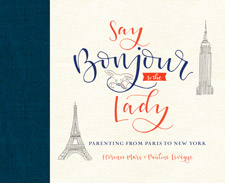 “Garden of Lamentations,” by Deborah Crombie
“Garden of Lamentations,” by Deborah Crombie
(William Morrow, pp 400, $15.99)
A new shipment from Texas transplant, Deborah Crombie, to the UK brings another powerful thriller featuring the Scotland Yard detectives Duncan Kincaid and Gemma James. The most interesting aspect of Crombie’s novels, and this one (her 17th) does not fail to hit the high mark, lies in their characterizations. No two thriller-writers write alike, but two schools stand out. One that accentuates plots and actions, while the other emphasizes characterization and, indirectly, intimacy. We travel through life with the protagonists, outside of the investigation. We meet their families and evolve within their domestic spheres, their marriage, children and personal problems. It goes without say that this latter category makes for a different kind of reading and novel experience. Crombie is neither one nor the other, but a perfect balance between the two that few can achieve without falling into the traps of tediousness and formulas.
“Garden of Lamentations,” takes us from the get-go on a double-spiral ride. The Kincaid-James team works separately. First Gemma is involved in the investigation of the murder of a young woman, whose body is discovered in one of Notting Hill’s private gardens. Suspicion does not lag; for this macabre discovery is located in one of London’s most select neighborhoods. When another victim meets the same dark forces, Gemma knows that there is something more at play. Meanwhile, Kincaid, who fears for his life, has moved away from Gemma James, to investigate a case involving members of the forces. Distrust reigns in the ranks, especially after an officer is violently assaulted. As a reader, you anticipate when these two stories are going to cross path. I will not tell you how but partially points you in the direction. While Gemma foresees a potential solution to her crimes, she becomes aware that a child’s life rests in her hands . . . and this makes for a psycho-haunting uninterrupted read, with Kincaid to the rescue.




